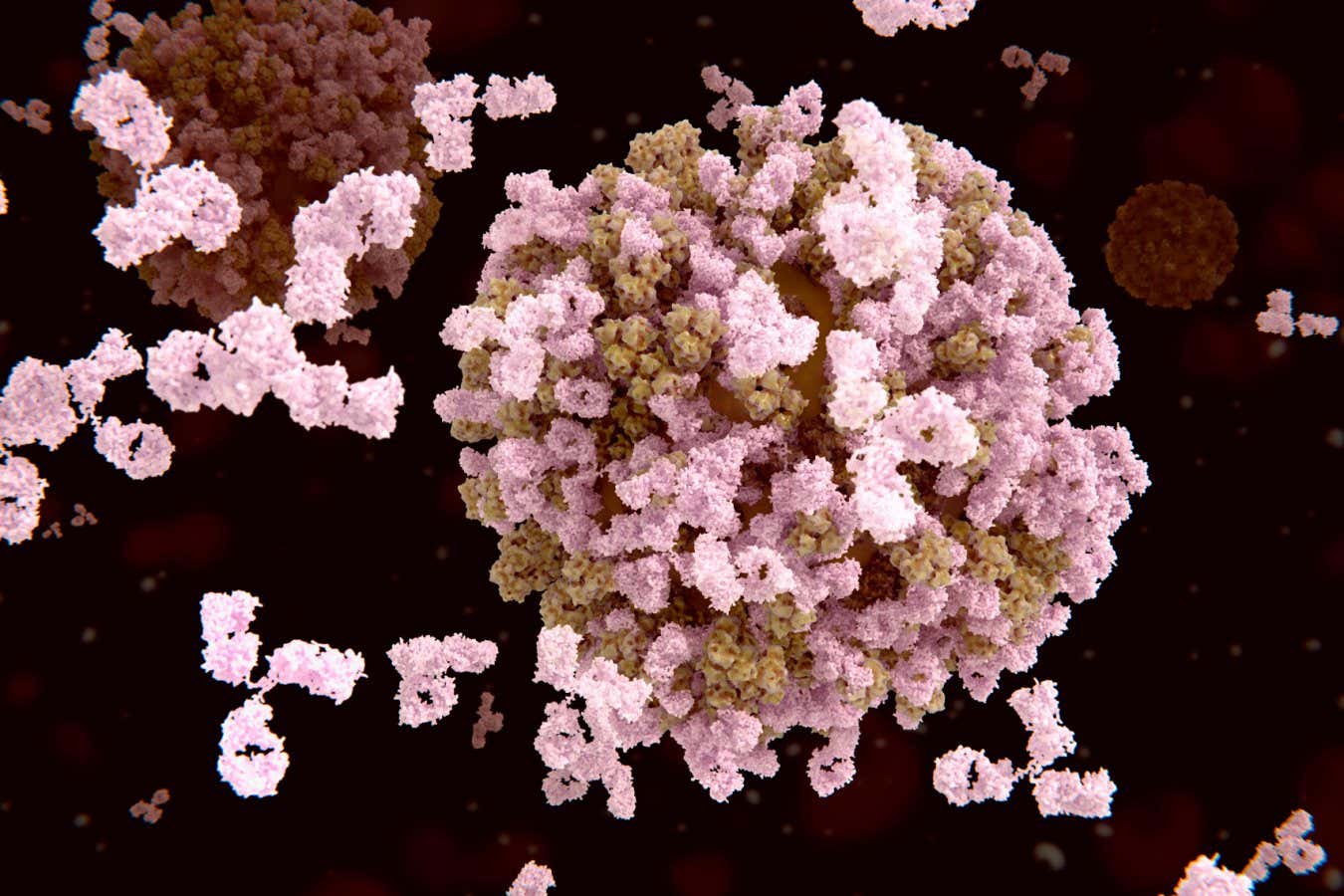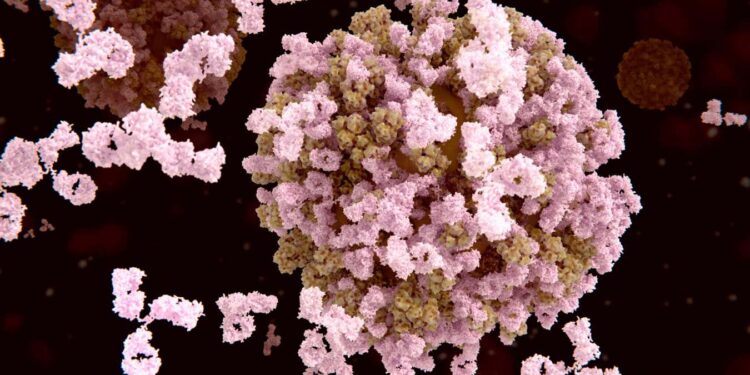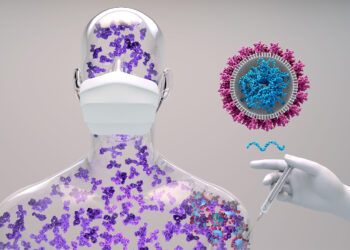
Illustration of antibodies attacking influenza virus particles
Science Photo Library/Alamy
A cocktail of antibodies could give us a new weapon to fight seasonal flu and new strains that cause pandemics. The mix protected mice from various strains of influenza, but hasn’t yet been tested in humans.
Most flu treatments and vaccines rely on prompting the body to make proteins called neutralising antibodies. These bind to specific strains of a virus, preventing it from infecting cells. Such medical interventions can be very effective, but can take many months to develop and may lose effectiveness if the virus mutates. This is why flu vaccines are updated seasonally and why researchers are working on a universal vaccine that would protect against all flu strains or even against all viruses.
Silke Paust at the Jackson Laboratory in Farmington, Connecticut, and her colleagues have a different approach. They are focusing on non-neutralising antibodies, another kind of protein produced by the immune system. Researchers have largely ignored these proteins for fighting infectious diseases because they don’t prevent infection. Instead, they empower the immune system to kill the virus responsible by tagging already infected lung cells.
“We are making a therapy, not a vaccine. What we are trying to do is create a drug that you can give prophylactically or therapeutically after infection to prevent severe disease and death,” says Paust.
Paust and her colleagues focused on antibodies that would target an influenza virus protein in a region called M2e, which is essential for the virus to replicate itself and is nearly unchanged in all flu strains.
The researchers conducted a series of experiments in which they tested how well the antibodies worked individually or in combination in mice that were infected with a flu virus, and found that combining three antibodies gave the best results.
They tested the cocktail in mice exposed to two strains of H1N1 influenza, including the one that caused the 2009 swine flu pandemic and gave rise to the currently circulating H1N1, and two avian influenza strains: H5N1, which is infecting wildlife around the world and some livestock in the US, and H7N9, which can be deadly to both humans and other animals.
The researchers discovered that the cocktail reduced disease severity and the amount of virus in the lungs, and improved survival rates in both healthy and immunocompromised animals.
For H7N9, for example, all mice survived when given the antibody cocktail in the first three days after infection, 70 per cent survived if treated on day four and 60 per cent if treated on day five.
It is the first time we have seen such broad protection against flu in living animals, says Paust. The cocktail also worked when given before infection, so the drug could potentially be used in advance to prevent illness.
Even after 24 days of treatment, there were no signs of the virus successfully mutating to resist it. “If the virus wants to mutate away from the therapy, it would have to evade all three antibodies because they don’t bind in exactly the same way,” says Paust.
“As a proof of principle, this shows how a cocktail of antibodies might be utilised as a drug to treat people during a flu pandemic which could be used in parallel to vaccines,” says Daniel Davis at Imperial College London. “But this would need to be tested in humans before this can be considered a true medical advance.”
The next step, says Paust, is to alter the antibodies that target M2e to make them look like human proteins, so the immune system doesn’t see them as invaders and attack them, which has been done before with many antibodies. If that works, safety and efficacy trials would follow.
Paust envisions the cocktail being used as a stockpiled drug to fight seasonal flu outbreaks. “Ideally, this would be something to give to high-risk patients at the beginning of the season,” she says. “It would mean that they wouldn’t get very ill, essentially.”
Topics:
Source link : https://www.newscientist.com/article/2495871-antibody-cocktail-could-work-as-a-universal-flu-treatment/?utm_campaign=RSS%7CNSNS&utm_source=NSNS&utm_medium=RSS&utm_content=home
Author :
Publish date : 2025-09-10 19:00:00
Copyright for syndicated content belongs to the linked Source.









